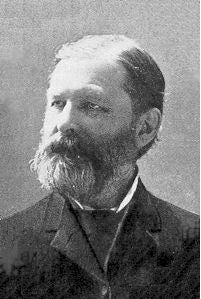Sacred Songs: 'Nothing but the Blood" reminds us what truly cleanses
Robert Lowry’s classic hymn points to the only way sin is washed away.
On Sunday, we had the joy of singing one of my favorite hymns: “Nothing but the Blood.”
Written by Robert Lowry in 1876, this classic American hymn is beloved for its simple, powerful declaration of the cleansing power of Jesus’ sacrifice.
Lowry — a Baptist pastor, theologian and professor — composed more than 500 hymns, including the well-known “Shall We Gather at the River?”
Though he once said he preferred preaching to hymn writing, it is his music that has left the most lasting impact. He taught theology at what is now Bucknell University and served churches in both Pennsylvania and New Jersey.
“I always feel that my hymns are not mine, that God gave them to me, and that I was simply the instrument through which they came,” Lowry once said.
Here’s how “Nothing but the Blood” starts:
What can wash away my sin?
Nothing but the blood of Jesus
What can make me whole again?
Nothing but the blood of Jesus
Here’s the chorus
O precious is the flow
That makes me white as snow
No other fount I know
Nothing but the blood of Jesus
Rooted in passages like Hebrews 9:22 (“without the shedding of blood there is no forgiveness of sins”), the hymn affirms that salvation and cleansing come solely through Christ’s sacrifice — not human effort.
From the beginning, God has required the shedding of blood to purify us of our sins.
After Adam and Eve disobeyed and realized their nakedness, God clothed them with garments made from animal skins — an act that likely marked the first blood sacrifice.
Here are some other times when God required a blood sacrifice for sin — key moments that help us understand why Jesus had to shed his blood to repair our relationship with God.
Cain and Abel (Genesis 4): Abel offered a blood sacrifice from his flock; Cain offered produce. God accepted Abel’s offering but rejected Cain’s. Many see this as showing God’s preference for a blood offering tied to substitution and atonement.
Noah’s Sacrifice (Genesis 8:20–21): After the flood, Noah built an altar and offered clean animals as burnt offerings. God was pleased and made a covenant never again to destroy the earth with a flood.
Abraham and Isaac (Genesis 22): God asked Abraham to sacrifice Isaac. Though God stopped him, a ram was sacrificed in Isaac’s place. This act foreshadows substitutionary atonement.
The Exodus: Passover (Exodus 12): God instructed Israel to sacrifice a lamb and place its blood on the doorposts. This blood protected them from judgment and death. The Passover lamb became central to Israel’s worship and directly points to Christ (see 1 Corinthians 5:7).
The Mosaic Law and Tabernacle Sacrifices (Leviticus 1–7, 16): God instituted a detailed system of animal sacrifices — burnt offerings, sin offerings, and especially the Day of Atonement (Yom Kippur) in Leviticus 16. Blood was required to cover sin, cleanse the altar, and make peace between God and his people.
All these pointed forward to Jesus, the once-for-all sacrifice (Hebrews 10:10) who fulfilled and ended the sacrificial system by shedding his own blood on the cross.
The entire story of scripture points to the blood of Jesus as the only means of forgiveness, cleansing and peace with God.
That’s why this hymn still resonates nearly 150 years later. It reminds us that nothing else will do. Not our works. Not our goodness.
Nothing but the blood.





